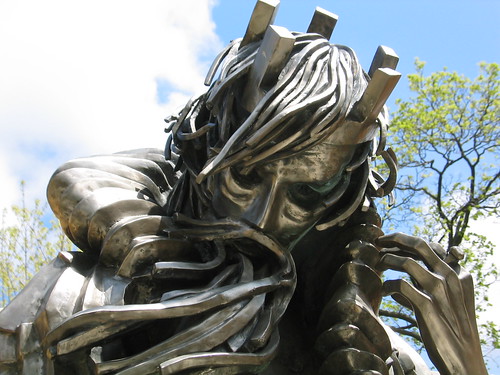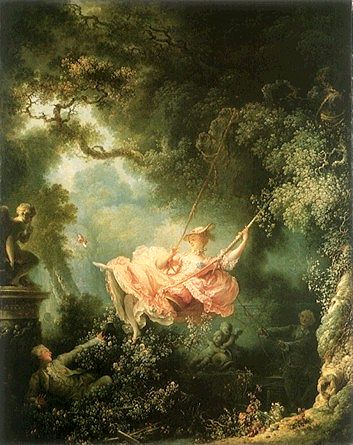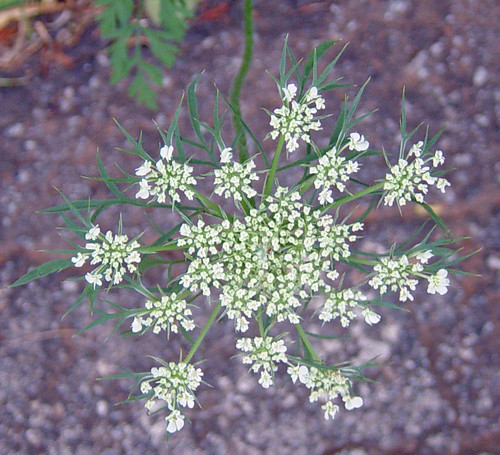Monday, July 21, 2008
AP English Literature and Composition 2008-2009
Tuesday, May 20, 2008
Re-Contextualizing & Re-Imagining a Text: Heart of Darkness becomes Apocalypse Now!
1. Senseless Violence Directed toward Natives and the Land (the unknown)
Heart of Darkness: Marlow sees an attack on the natives though he can see no natives.
‘…assuring me most earnestly there was a camp of natives – he called them enemies! – hidden out of sight somewhere.’ (page 15)
Apocalypse Now! Opening Scene
Willard seems to remember an attack on the countryside. As in the scene from Heart of Darkness no enemy is seen but the land, the forest is destroyed.
2.
Heart of Darkness Marlow with the Russian Trade Meets Kurtz
"I could not hear a sound, but through my glasses I saw the thin arm extended commandingly, the lower jaw moving, the eyes of that apparition shining darkly far in its bony head that nodded with grotesque jerks. Kurtz -- Kurtz -- that means short in German -- don't it? Well, the name was as true as everything else in his life -- and death. He looked at least seven feet long. His covering had fallen off, and his body emerged from it pitiful and appalling as from a winding-sheet. I could see the cage of his ribs all astir, the bones of his arm waving. It was as though an animated image of death carved out of old ivory had been shaking its hand with menaces at a motionless crowd of men made of dark and glittering bronze. I saw him open his mouth wide -- it gave him a weirdly voracious aspect, as though he had wanted to swallow all the air, all the earth, all the men before him. A deep voice reached me faintly. He must have been shouting. He fell back suddenly."
The Manager talks to Marlow of Kurtz's "unsound methods"
"The manager came out. He did me the honour to take me under the arm and lead me aside. 'He is very low, very low,' he said. He considered it necessary to sigh, but neglected to be consistently sorrowful. 'We have done all we could for him -- haven't we? But there is no disguising the fact, Mr. Kurtz has done more harm than good to the Company. He did not see the time was not ripe for vigorous action. Cautiously, cautiously -- that's my principle. We must be cautious yet. The district is closed to us for a time. Deplorable! Upon the whole, the trade will suffer. I don't deny there is a remarkable quantity of ivory -- mostly fossil. We must save it, at all events -- but look how precarious the position is -- and why? Because the method is unsound.' 'Do you,' said I, looking at the shore, 'call it "unsound method?"' 'Without doubt,' he exclaimed hotly. 'Don't you?' . . . 'No method at all,' I murmured after a while. 'Exactly,' he exulted. 'I anticipated this. Shows a complete want of judgment. It is my duty to point it out in the proper quarter.' 'Oh,' said I, 'that fellow -- what's his name? -- the brickmaker, will make a readable report for you.' He appeared confounded for a moment. It seemed to me I had never breathed an atmosphere so vile, and I turned mentally to Kurtz for relief -- positively for relief. 'Nevertheless I think Mr. Kurtz is a remarkable man,' I said with emphasis. He started, dropped on me a heavy glance, said very quietly, 'he WAS,' and turned his back on me. My hour of favour was over; I found myself lumped along with Kurtz as a partisan of methods for which the time was not ripe: I was unsound! Ah! but it was something to have at least a choice of nightmares.
Apocalypse now Willard [Marlow] meets Kurtz who speaks of the beauty of gardenias, asks if Willard thinks his "methods" are "unsound," and says Williard was sent by "grocery clerks to collect a bill" (an allusion to the Manager?)
3.
Kurtz reads "Hollow Man" by T.S. Eliot (the epigraph to this poem is taken from Heart of Darkness: "Mistah Kurtz, he dead") while the Photojournalist [an ambivalent admirer of Kurtz like the Russian trader in the novel] talks with Willard [Marlow]
4.
"The Horror! The Horror!" spoken by Kurtz in the novel and the film but in different contexts
Heart of Darkness
"Anything approaching the change that came over his features I have never seen before, and hope never to see again. Oh, I wasn't touched. I was fascinated. It was as though a veil had been rent. I saw on that ivory face the expression of sombre pride, of ruthless power, of craven terror -- of an intense and hopeless despair. Did he live his life again in every detail of desire, temptation, and surrender during that supreme moment of complete knowledge? He cried in a whisper at some image, at some vision -- he cried out twice, a cry that was no more than a breath:
"'The horror! The horror!'
"I blew the candle out and left the cabin. The pilgrims were dining in the mess-room, and I took my place opposite the manager, who lifted his eyes to give me a questioning glance, which I successfully ignored. He leaned back, serene, with that peculiar smile of his sealing the unexpressed depths of his meanness. A continuous shower of small flies streamed upon the lamp, upon the cloth, upon our hands and faces. Suddenly the manager's boy put his insolent black head in the doorway, and said in a tone of scathing contempt.
"'Mistah Kurtz -- he dead.'
Apocalypse Now!Note: The violence Kurtz describes here might recall the heads on sticks in Heart of Darkness, which also seems to have inspired Golding's Lord of the Flies (sow's head on a stick) and the stick sharpened at both ends intended for Ralph.
5.
Whereas in the novel Kurtz declines in the film Willard (Marlow) kills him.
Heart of Darkness
"The shade of the original Kurtz frequented the bedside of the hollow sham, whose fate it was to be buried presently in the mould of primeval earth. But both the diabolic love and the unearthly hate of the mysteries it had penetrated fought for the possession of that soul satiated with primitive emotions, avid of lying fame, of sham distinction, of all the appearances of success and power.
"Sometimes he was contemptibly childish. He desired to have kings meet him at railway-stations on his return from some ghastly Nowhere, where he intended to accomplish great things."
Apocalypse Now!
Monday, May 19, 2008
Final Project: Language, Imagination, and Context
Before writing...
^Take notes on a lecture about poetry in the 20th and 21st century.
^Choose a “group,” “movement,” or “school”. (No more than two students can share a “movement” or “school”.)
1. Write a reflection on the experience of reading the poems.
The edict of the modern and post-modern age in poetry comes from Ezra Pound: “Make it new!”
2. Write a careful, insightful explication of one of the poems. Post this on your blog. For explication help look here. Also, look at the directions above for ideas about what to explicate/explain/interpret/unfold. You're only doing one explication so it should show an imaginative, insightful grasp of the whole and of the particulars of the poem.
When explicating write about what the poem seems to say and how it says it. With modernist and post-modernist poetry the how (or form)--the speaker's voice, diction, syntax, tone, sound, line breaks, arrangement, etc.--is often as important or more important than the what (or content)--the speaker, the occasion, the subject, the plot or events, other people or characters in the poem.
Or to put it more succinctly, Samuel Beckett (Waiting for Godot) said that James Joyce (A Portrait of the Artist) isn't "writing about something. He is writing something."
3. Research the group / movement / school and write a reflection that demonstrates that you understand the group / movement / school, its relationship to the poems you’ve read, and to your own developing ideas about literature and language. {Notice the three parts to this: 1. show that you understand the group & what it was/is all about, it's significance, etc.; 2. show how the group's ideas, values, etc. has some relationship to the how (form) and what (content) of the poems you've read; 3. develop your own thoughts about the poems you've read and the group that created them, especially in terms of what you think literature should or could do, as well as what you get from & want from literature.}
4. Find a work of art other than a poem—painting, sculpture, musical composition, dance, film, etc.—that is somehow related to the group / movement / school. In some cases—surrealism, Dadaism, futurism for example—this will be easy because these movements occurred in the visual arts too. In other cases, you’ll have to be a bit more inventive. I can help with this. Ask me.
Write a response explicating the work of art and explaining how it relates to the poetry movement. (Notice there are two parts to this. 1. Provide a close reading of the work of art. For help explicating visual art check out step four here at my friend's blog (Mr. Gallagher of Malden High School). 2. Show a relationship between the poetry you have read (& the group / movement / school of poetry) and the art-other-than-poetry. I will also provide some examples in class.
5. Create a work of art—poem, painting, short film, script, etc.—that relates in someway to the poems, other art, or movement / group / school. Write a paragraph explaining the connection between your creation and the work you have done. The art & paragraph should be on your blog. (If the art is visual and you don't know how to scan it or take a digital photograph let me know; I'll help.)
Monday, May 12, 2008
A Blog of One's Own
2. After you have created a blog. Email your blog address to me at jcook@gloucester.k12.ma.us. On Wednesday I will add a link between the class blog and your individual blog, so mail me your blog address before then.
3. The first post on your blog should be a 300-600 word personal-and-analytical response to Heart of Darkness or another work of literary merit that you have been reading over the past several weeks. This is due before A-block on Friday, May 16.
4. The subsequent posts
Friday, May 2, 2008
AP Review
1. Here's a link to the literary terms. Write questions in the comment box.
2. (This site offers a few additional terms and includes a review of writing movements and styles which I had intended to get to this week. Very few questions deal with writing movements (romanticism, modernism, surrealism) but it is a good idea to review, refresh, and perhaps learn something new. Write questions in the comment box.
3. This year we've read the following novels and plays: Invisible Man, Wide Sargasso Sea, Jane Eyre, A Portrait of the Artist as a Young Man, As I Lay Dying, Antigone, a play of your choice, King Lear, Waiting for Godot, Slaughterhouse Five, and Heart of Darkness (or "a work of similar literary quality").
In the comment box, I'd like for you to identify and comment on the protagonist, antagonist(s), significant characters, major scenes, motifs/symbols, themes, tone/mood, narrative perspective, writing style (diction, syntax), and anything else you think is relevant.
Please add on to each other's identifications and respond to each other's comments.
Everyone should post something significant (identification/comment/add on/response) about at least three works by the beginning of class on Tuesday May 6.
{Dan, the name of Edna St. Vincent Millay poem is sonnet XII from Mine the Harvest.}
Monday, April 28, 2008
El Greco to Velazquez

 These paintings are The Opening of the Fifth Seal (The Vision of Saint John) and View of Toledo by El Greco.
These paintings are The Opening of the Fifth Seal (The Vision of Saint John) and View of Toledo by El Greco.Here's a link to the art exhibit I spoke about in class.
Here's a review from the Boston Globe.
Here are some of El Greco's paintings.







